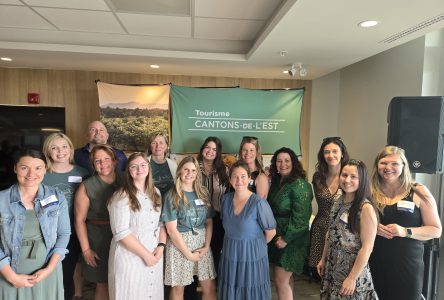The end of April and beginning of May would normally be a time when the staffs of summer camps across the townships would get to work on preparing for their busy summer season. This year, however, camps across the province find themselves facing an uncertain future under an ongoing closure order from the department of public health.
Eric Beauchemin, Executive Director of Quebec’s camping association, the ACQ, said that although everyone is on hold at the moment, camps have been given four main directives from the ministry of education to use in their planning. Camps are to consider ways to maintain social distancing, find ways to encourage outdoor activities over indoor ones, avoid physical contact between people as much as possible and encourage hygiene practices by promoting regular hand washing and providing easy access to hand sanitizer.
“We’ve asked that social distancing rules be relaxed,” he said, explaining that a counterproposal to that effect from the ACQ is currently being considered by the provincial government. “We hope to know more by mid-May.”
Although Beauchemin said that camps across Quebec are still planning around the initial four guidelines, he pointed out that the concept of social distancing makes things very difficult for residential camps where campers share tents or cabins and are often in close quarters on days when it is rainy outside.
“Our fingers are crossed,” shared Craig Dewar, convener of the camp committee for Camp d’Action Biblique near Richmond. “We’re encouraged by the fact that elementary kids are planning to go back on the 11th of May.”
Dewar repeated Beauchemin’s notion that a lot depends on what the government decides, but in the meantime he said that the committee has come up with three possible plans to work from this coming summer.
“We’ve worked on a plan that has no camping that allows us to do some infrastructure work, we have a plan that keeps our normal camping going starting at the end of June, and we also looked at a plan where we can’t camp until August,” he said. “We’d love to camp as normal, but we know we’re going to have restrictions on us.”
Brian Wharry, the Director of the Quebec Lodge Outdoor Centre on Lake Massawippi said that his board of directors is meeting next week to make more distinct decisions, but that for the moment the plan is to go ahead with eight weeks of day camp and four weeks of residential camping.
“We’re moving ahead with plans for a full summer, but obviously looking at options depending on what the government says,” he said, underlining the importance of making sure that the campers and staff are all safe. “It will obviously not be a normal summer,” he added, pointing to the need for social distancing and other new procedures.
Wharry noted that, so far, little has been said about what camps can or cannot do, but shared that there seems to be optimism in the registrations he has to date.
“As of now, nothing has been cancelled,” the camp director said, adding that only one parent backed out of plans to send their child this summer.
“Everyone is sort of planning and hoping for a full summer,” he said.
Lara Willis, the Director of Camp Wilvaken on Lake Lovering, was not able to echo Wharry’s comments about a lack of cancellations. Wilvaken normally has a number of school groups visit towards the end of the academic year and she said that these have all been cancelled for this year, something which she said is both a loss for the site financially and a loss for the kids for whom the visit might have been a once-in-a-lifetime opportunity.
Willis said that the situation is also more complicated for Wilvaken because the camp regularly welcomes roughly one third of its summer population from other countries. As a result, there is some question as to who will end up coming this summer.
‘I’m not going to ask someone bringing their 11 year old from Spain to go through a two week quarantine so they can take their child to camp,” the director said, reflecting that the loss of their international campers stands to have a dramatic impact on the culture and community of the space.
All of the camp directors with whom the Record spoke put the health and safety of their camp communities at the forefront of their priorities, but they also underlined the fact that it will not be easy to get camps up and running in any form if there isn’t more information and direction from the province soon.
“We still need to have time for staff training and preparing the site,” Willis said.
Beauchemin, meanwhile, pointed out that the provincial shutdown came right in the middle of what is often prime registration time for camps, leaving many parents and many camps unsure about what to expect in terms of offering for the summer.
“We don’t have a lot of answers right now,” the ACQ Director said, expressing that although most summer camp administrators are good at thinking on their feet and adjusting to new norms, it is important to know what those norms are to be able to move forward. “We’re good at playing games,” he said. “but we need to know the rules.”




